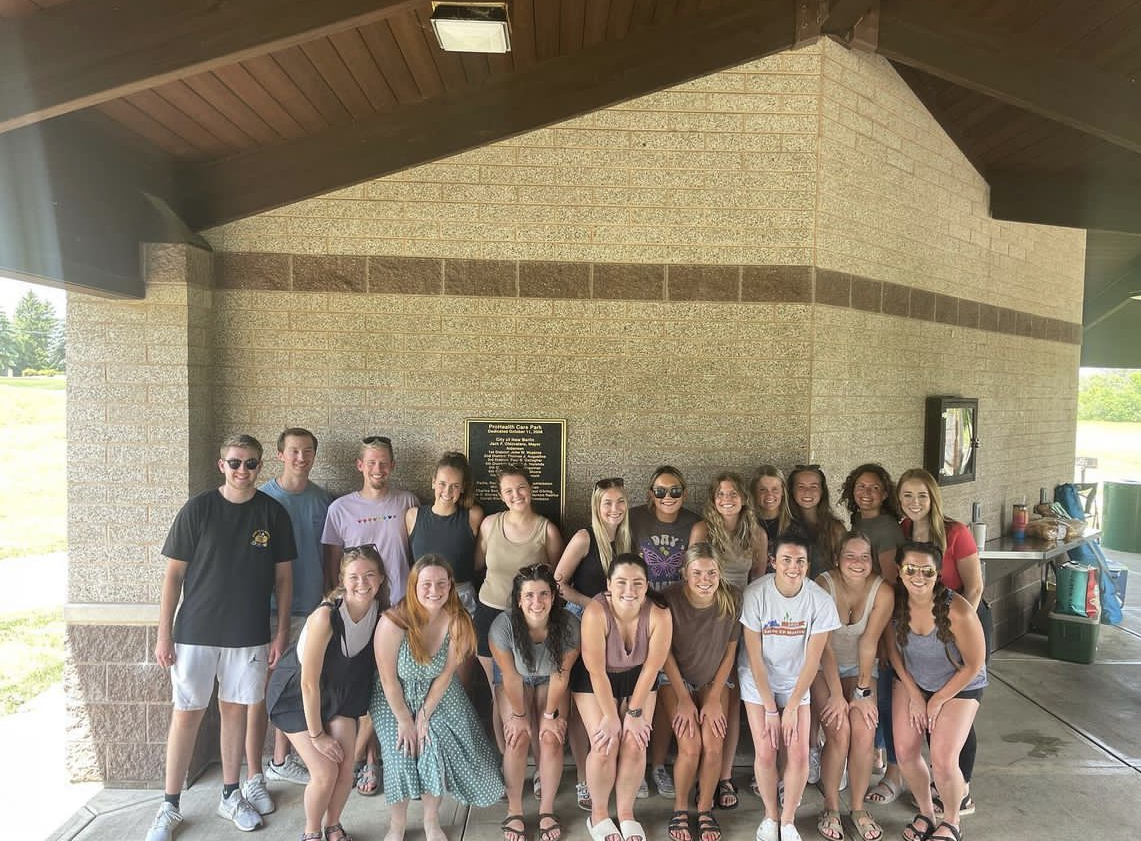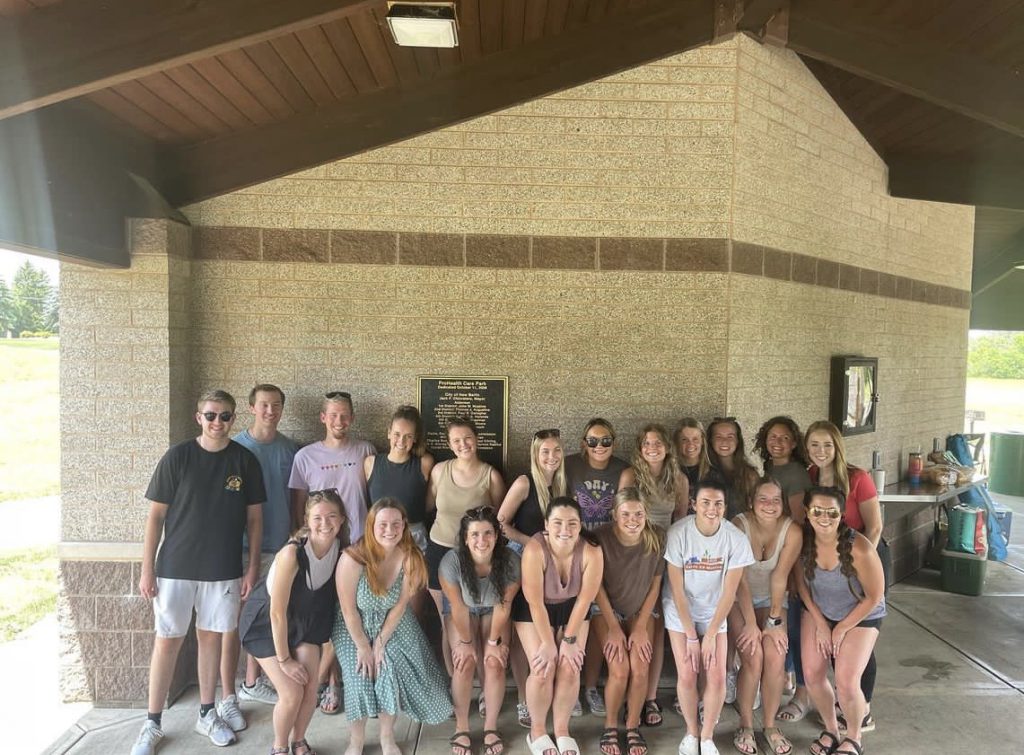
Senior, Kylee Barrett, tells us what its like being an Echocardiography student
As a sonography student, I start early most mornings, usually with coffee. From there, I head to either class or a clinical site. As a senior student, our clinics are three days a week, usually Monday, Wednesday, and Friday. Clinical consists of eight-hour days at various Southeast Wisconsin locations, where I practice my skills and apply the knowledge I learn in class. The Aurora St. Luke’s Medical Center, School of Diagnostic Sonography, is where didactic courses and clinical rotations occur. Clinical rotations are a month long and dedicated to a specific area of echocardiography, for example: cardiac stress testing, structural heart disease, and interventional cardiology. I visit a new hospital or clinic within the Advocate Aurora system each month and practice echocardiography or vascular sonography. These rotations allow me to see a wide variety of different scanning techniques and patient populations. Clinical experience is the most crucial part of sonographer education, enabling you to understand different anatomical features and pathologies further.

The other two days of the week are lecture and scan lab days. I either have one class and a scan lab or two classes. These days are typically shorter and sometimes have independent study opportunities. During Independent study, professors are generally available to help with practice scanning. Practice scanning is done with another classmate in our scan labs. Our classmates work together developing study material and projects such as case studies and practical scanning techniques. Usually, my days end with studying, working out, or having dinner with friends. Overall, my time at Aurora St. Luke’s Medical Center, School of Diagnostic Sonography, has given me fantastic opportunities to learn the world of echocardiography and vascular sonography and prepared me to be a real-world sonographer.
The Cardiac Sonography program at Concordia University works with Aurora St. Lukes to provide the best educational model for those pursing cardiac sonography. This partnership allows students to get extensive clinical experience, as well as in-class learning opportunities.
Want in?
The Department of Imaging at Concordia University Wisconsin encompasses two bachelor’s degree programs.
The Bachelor of Science in Diagnostic Medical Sonography (DMS) offers three distinct pathways to prepare learners to step forward into their calling as a medical sonographer: the undergraduate DMS certificate, in-person bachelor’s degree, or an online sonography completion program.
Meanwhile, the Bachelor of Science in Radiologic Technology, or rad tech program, is a two-plus-two offering. Students spend the first two years on the Concordia campus taking prerequisite classes before applying for placement into one of our JRCERT-accredited partner rad tech programs. The second two years are within the professional phase of the major and will consist of didactic and clinical coursework.
Learn more by clicking on the links below.
—Kylee Barrett is a student majoring in Echocardiography through Concordia University Wisconsin. She is currently a senior, graduating in May 2024.
